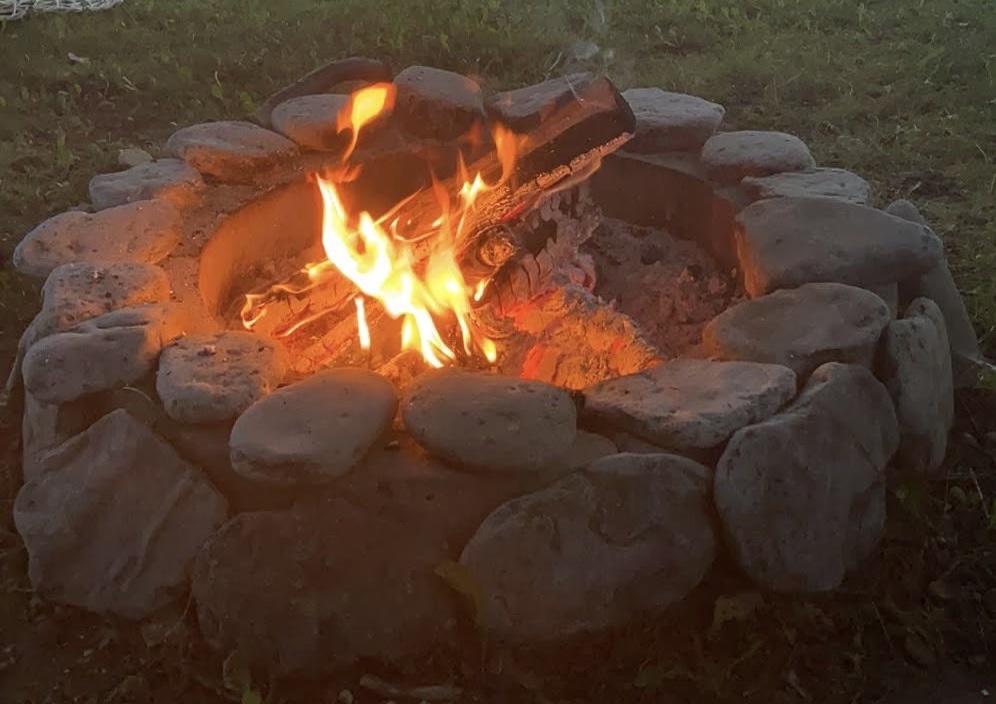
In the story Jesus tells about building barns and storing riches in heaven[1] the message he gives goes against the grain of our impulse.
Because it’s in our nature to accumulate, to make good, to build bigger and better, to go further and farther, and to make progress. Why wouldn’t we do all those smart things for our lives, if we can and have the resources to do so? Why would we want to go backward when we can go forward? Why would we want to subtract when we can add?
For sure, embracing the good in life is a huge part of being human and of God. Attaching ourselves to what is wholesome, productive and enriching is an important part of our maturity and growth, even in faith.
But it’s the other part that we’re not so practiced in. The subtraction part. And I believe that’s what Jesus is getting at here. He isn’t denying the good in what we can build and produce. But as people of faith we need also to learn how to let go. How to give up without giving up.[2]
In the parable that Jesus tells, the man who stored up riches did so for himself. That was the problem. He needed to learn how to give what he had stored for himself to others.
In 21st century Canada, we have a lot to learn. When well over half of all food produced and consumed in our economy is wasted and thrown out[3], when the self-storage industry has experienced “meteoric growth” in recent times[4], we are a culture that hoards for ourselves things that can be shared.
We have a tough time letting go, and embracing our fear of going without.
In his book, Young Men and Fire[5], Norman Maclean begins his story on one summer afternoon in 1949 when fifteen young men—smokejumpers for the U.S. Forest Service—were about to leap out of a C-47 flying over the Rocky Mountains of western Montana. They were between seventeen and twenty-three years old, crack firefighters knowing exactly what they were doing.
“It looked like a regular ground fire from the sky. They’d get to it fast, dig a fire line around it, and be out by ten the next morning. That was their usual pattern in working fires.
“But something unexpected happened that day after they got on the ground. The wind changed direction and the fire went up into the crown of the trees. A crown fire moves much faster, roaring through timber, beginning to sound like a railroad train, becoming a monster as fires in the mountains sometimes do …
“On that day in August, the firefighters suddenly saw something like that roaring toward them as they raced up the ridge toward safety. It was almost a hundred degrees that day already, the hottest on record. They were running up a seventy-six-degree slope over thick dry grass, very slippery. They got within two hundred yards of the ridge, but the fire was only fifty yards behind them and coming fast.
“That’s when Wagner Dodge, the foreman of the crew, did something unheard of. Running out in front of his men, he took a match and lit a fire in the dry grass in front of him. As this new fire quickly burned up the slope, he yelled at the others to jump into its burning ashes with him.
“They thought he was crazy, maybe trying to commit suicide. So they raced on up toward the ridge as he lay down in the hot ashes, covering his face with a wet handkerchief.
“The fire caught thirteen of the others; they died on that August day. Dodge survived, however, as the main fire swept around his burned-out-circle. He was left breathing what little air there still was close to the ground. Who would have thought of escaping a monster by burning a hole in the fire and lying down in it?
“Our natural inclination—whether in wilderness or in daily life—is to flee from the fire, to avoid the painful experiences that come in our lives. Yet God’s way isn’t around the wilderness, but through it. Not in escaping the fire, but in lying down in it.”[6] Not in hoarding or keeping for ourselves, but first giving it away, taking a risk, and letting go.
It may feel counterintuitive to acknowledge our limits and yield to what might at first sound crazy. Why would I give up such-and-such? Why should I let go of my claim to be right all the time? Why should I sell? Why should I give away something without expectation of anything in return? Why should I leave behind something or someone that is near and dear to my heart? Doing that would cause pain and suffering, wouldn’t it?
I believe Jesus wants better for us. But we must be willing to endure the growing pains. We must be willing to practise letting go. And embracing the truth which isn’t always easy to take.
I am struck by the number of times “under the sun” is mentioned in the reading from Ecclesiastes. I counted five times in ten short verses. Maybe this phrase jumps out at me because we find ourselves today in the middle of the exceptional summertime heat across the northern hemisphere of this planet. “22What do mortals get from all the toil and strain with which they toil under the sun?” 7] Good question. But where is the wisdom in that?
The sun is a gigantic ball of flame. It is fire. The sun represents the Pentecost message of the Holy Spirit descending upon the disciples and people gathered in Jerusalem on that first Pentecost as “tongues of fire”[8]. And it’s not just a feel-good, warm-fuzzy experience. It burns. It heals. It transforms. As every one of those first disciples later discovered.
I want to conclude with a couple of scriptures, first from Isaiah, who wrote these words of promise, protection, and hope: “I have called you by name, you are mine,” God told the prophet. “When you pass through the waters, I will be with you; and through the rivers, they shall not overwhelm you; when you walk through fire you shall not be burned; and the flame shall not consume you. For I am the Lord your God.”[9]
The fire will not consume us, but it will transform us. As the deadwood itself is transformed into the beauty of the flame. And this is the fire of God’s love, God’s passion for us. God loved us in the past. God will love us into an unknown, uncertain future.
In the Epistle reading appointed for this Sunday from Colossians, Paul writes about who we are becoming in Christ. As we face the fires of our lives and are transformed in God’s fire of love our new self … is being renewed in knowledge according to the image of its creator. 11In that renewal there is no longer Greek and Jew, circumcised and uncircumcised, barbarian, Scythian, slave and free; but Christ is all and in all![10]
Despite all our efforts for good or evil, regardless of whether we like it or not, we are being renewed into God’s image. It’s already happening! Even and especially through the difficult times of loss. Christ, through the Holy Spirit, is ‘in all’ working the fiery passion of God’s uniting and eternal love for us.
[1] Luke 12:13-21
[2] Jim Green, Giving Up Without Giving Up: Meditation and Depressions (Bloomsbury Continuum, 2019)
[3] https://www.cbc.ca/news/canada/toronto/food-waste-report-second-harvest-1.4981728;
[4] https://www.cbc.ca/news/business/canada-storage-business-booms-1.4579205; https://rejournals.com/self-storage-is-on-a-growth-kick-and-its-not-slowing-down/;
[5] Norman Maclean, Young Men and Fire (Chicago: University of Chicago Press, 1993)
[6] Belden C. Lane, in Chapter 6 “Wildfire”, The Great Conversation: Nature and the Care of the Soul (New York: Oxford University Press, 2019)
[7] Ecclesiastes 2:22-23
[8] Acts 2:1-13
[9] Isaiah 43:1-3
[10] Colossians 3:10-11



